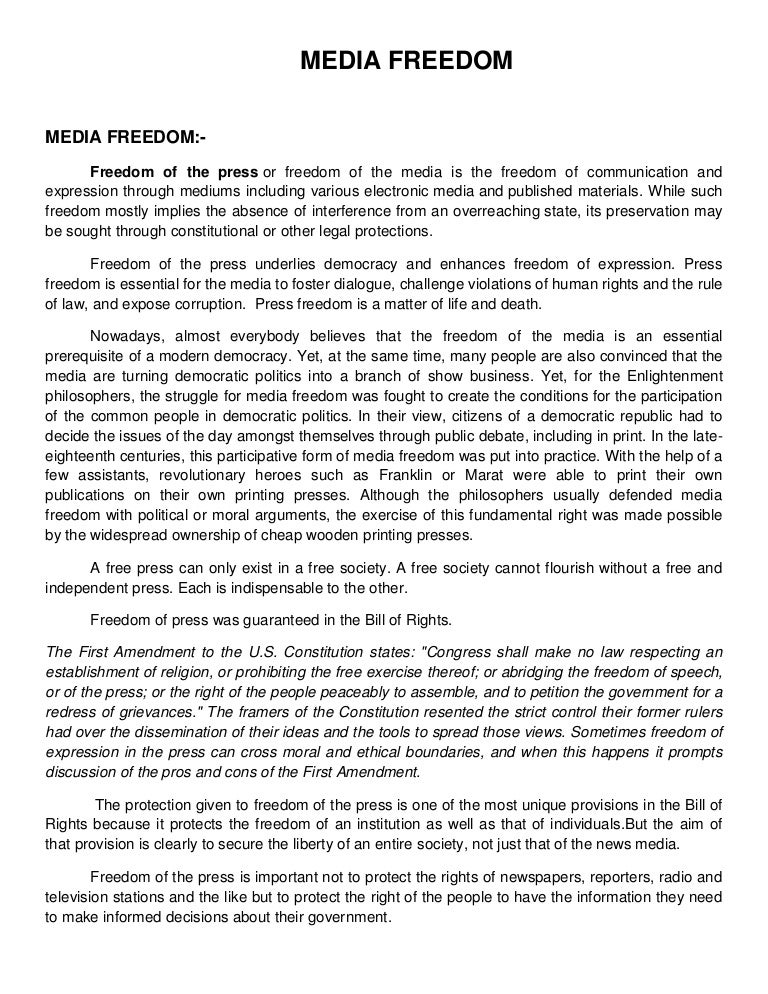
#Media freedom verification
Bureau of Arms Control, Verification and Compliance.Under Secretary for Arms Control and International Security.Arms Control and International Security.Office of Small and Disadvantaged Business Utilization.Deputy Secretary of State for Management and Resources.Bureau of Cyberspace and Digital Policy.Security Coordinator for Israel and the Palestinian Authority Special Representative for Syria Engagement.Special Presidential Envoy for Hostage Affairs.Special Presidential Coordinator for the Partnership for Global Infrastructure and Investment

Global AIDS Coordinator and Global Health Diplomacy Office of the Special Envoy for Critical and Emerging Technology.Journalists needa safe environment in which todo their work.

We commend thecourage of all journalists and media workers in Venezuela who, both onlineandoffline, report on attacks to democratic institutions and on human rightsviolations andabuses, as well as on corruption in Venezuela. Being ableto work in safety allows journalists to fulfill their crucial role of being asource of objective and unbiased information.
#Media freedom Offline
The right tofreedom of expression as exercised by journalists is fundamental to theprotectionand promotion of democracy, all human rights and the rule of law.Free, independent andpluralistic media both online and offline is crucial fora democratic society to make informeddecisions, hold authorities, institutionsand individuals accountable and hear a diversity ofopinions. The regime also allocates significant resources todisseminate itsown messaging and drown out voices that challenge its narrative. This is of particular concern,given that means of digital information andĬommunications have never been moreimportant and that most independent news outlets inVenezuela can now onlyoperate online. The blocking or filtering ofservices affects thefree flow of information as well as freedom of expression,further eroding media freedom andcivic space. Restrictivemeasures are evident in the digital space in Venezuela, where the Maduro regimeuses targeted content blocking against critics. As a result, Venezuela has lost its once-vibrantnewspaper sector andthe Maduro regime controls the domestic narrative. Mediaoutlets that criticize or challenge the Maduro regimerisk facing legalconsequences, including the cancellation of their licences and the seizure ofequipment or property. State-owned media outlets provide almost exclusively favourablecoverage to the regime, to thedetriment of any dissenting voices.

The Maduro regimehas also orchestrated the acquisition of media trusts to secure friendlyeditorial perspectives and propagate state-sponsored policies, messages andideology. To avoid persecution orundesired consequences, including arbitrary detentions, many journalists andnews mediaresort to self-censorship. Thesedifficulties also extend to non-governmental organizationsworking on analysisand reporting of current events within Venezuela. In recent years,the Maduro regime has restricted media freedom by harassing and persecutingdissenting voices, particularly those of journalists and media workers.Independent journalistsin Venezuela operate within a highly restrictiveregulatory and legal environment, and riskarrest and physical violence. This comes in addition to the considerable difficulties andrestrictions that are faced by non-governmental organizations working onanalysis and reporting of issues within Venezuela. Of particular concern arethe repressivemeasures employed by the Maduro regime, including theharassment andpersecution of journalists, media workers and independentmedia outlets,censorship, Internet shutdowns, property seizures and the generalsilencing ofcritics. The undersignedmembers of the Media Freedom Coalition express their deepconcern over the lackof media freedom in Venezuela. activities/joint-statements/2022/statement-venezuela-jul2022 Joint Statement Published: 4 July, 2022 Media Freedom Coalition statement on Venezuela


 0 kommentar(er)
0 kommentar(er)
